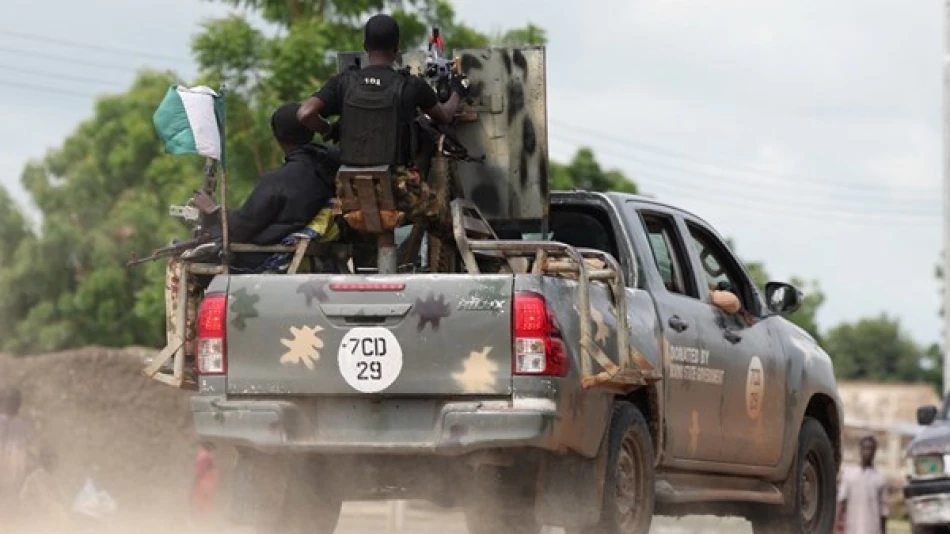
Deadly Terrorist Attack Claims Dozens of Lives in Nigeria
Nigeria's Border Security Crisis Deepens as Militants Kill 55 in Village Massacre
A coordinated terrorist attack on a strategic border village in northeastern Nigeria has left at least 55 people dead, including multiple soldiers, highlighting the persistent security vacuum that continues to plague the region despite years of military operations. The Friday night massacre in Darul Jama village underscores how militant groups maintain operational capacity along Nigeria's porous frontiers, particularly where the country meets Cameroon.
Strategic Location Under Siege
The attack targeted Darul Jama village, which houses a military base positioned along the Nigeria-Cameroon border—a corridor that has become increasingly significant for regional security operations. Local security sources confirmed that between five and six soldiers were among the casualties, suggesting the militants specifically targeted the military installation alongside civilian populations.
This border region has long served as a transit route for armed groups moving between countries, exploiting weak governance structures and limited military presence to establish operational bases. The presence of a military facility in Darul Jama indicates government recognition of the area's strategic importance, yet Friday's attack demonstrates the ongoing challenges in securing these remote outposts.
Regional Security Implications
The massacre reflects broader patterns of instability that have characterized northeastern Nigeria for over a decade. Unlike the headline-grabbing operations typically associated with Boko Haram in Borno State, this attack's location near the Cameroon border suggests either an expansion of existing militant networks or the emergence of new groups exploiting cross-border dynamics.
Cameroon has faced its own security challenges, including spillover violence from Nigeria's insurgency and separate conflicts in its Anglophone regions. The porous nature of the border creates a security dilemma where militants can strike in one country and retreat across international boundaries, complicating response efforts and jurisdictional coordination.
Military Response and Capacity Questions
The ability of militants to successfully assault a village housing a military base raises serious questions about force protection and intelligence capabilities in the region. Nigerian military forces have claimed significant victories against various insurgent groups in recent years, yet attacks like Friday's demonstrate that militant networks retain both the capacity and willingness to conduct large-scale operations.
The targeting of soldiers alongside civilians suggests a deliberate strategy to undermine government authority and demonstrate that even military-protected areas remain vulnerable. This approach has proven effective in other conflict zones, where attacks on security forces serve both tactical and psychological purposes in broader insurgency campaigns.
Broader Context of Regional Instability
This latest violence occurs against a backdrop of multiple security challenges across Nigeria's northern regions. While international attention often focuses on kidnapping incidents affecting schools and communities, systematic attacks like the Darul Jama massacre represent a different category of violence—one that directly challenges state authority and territorial control.
The incident also highlights how Nigeria's security challenges extend beyond any single group or ideology. The country faces threats from various militant organizations, criminal networks, and ethnic conflicts, creating a complex security environment that strains military and police resources across multiple fronts.
Most Viewed News

 Layla Al Mansoori
Layla Al Mansoori






